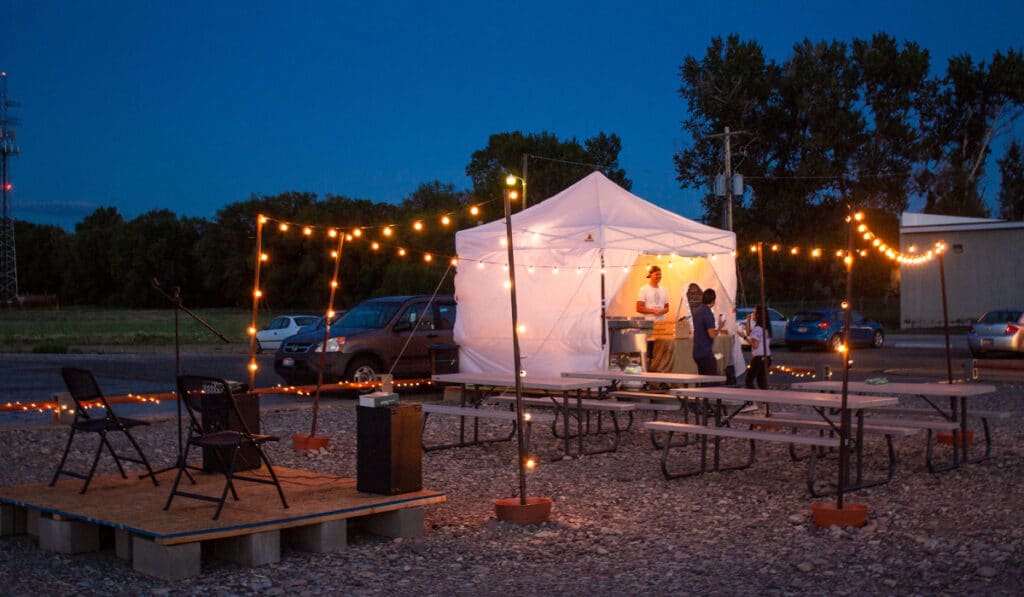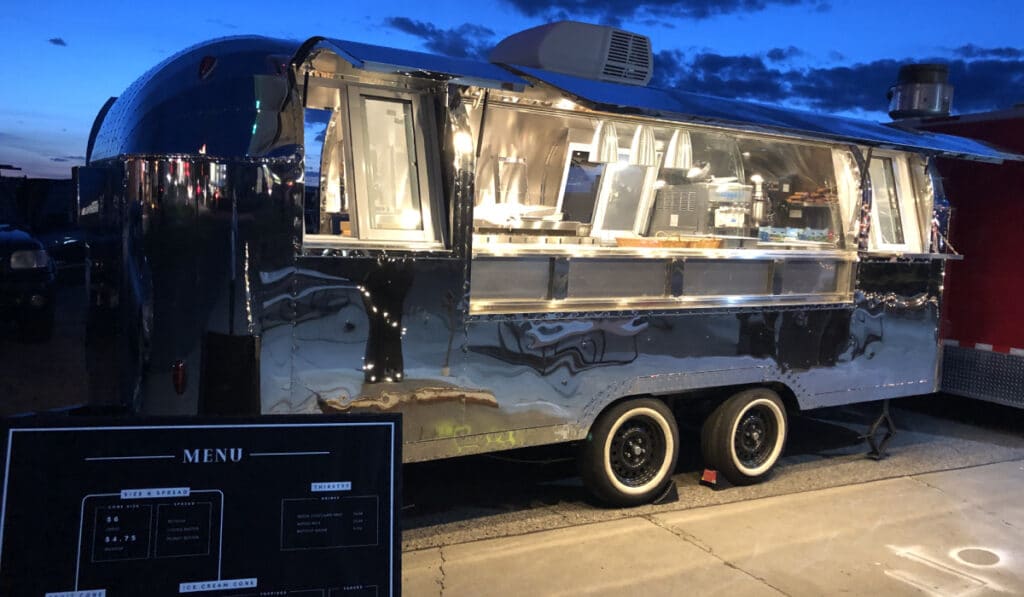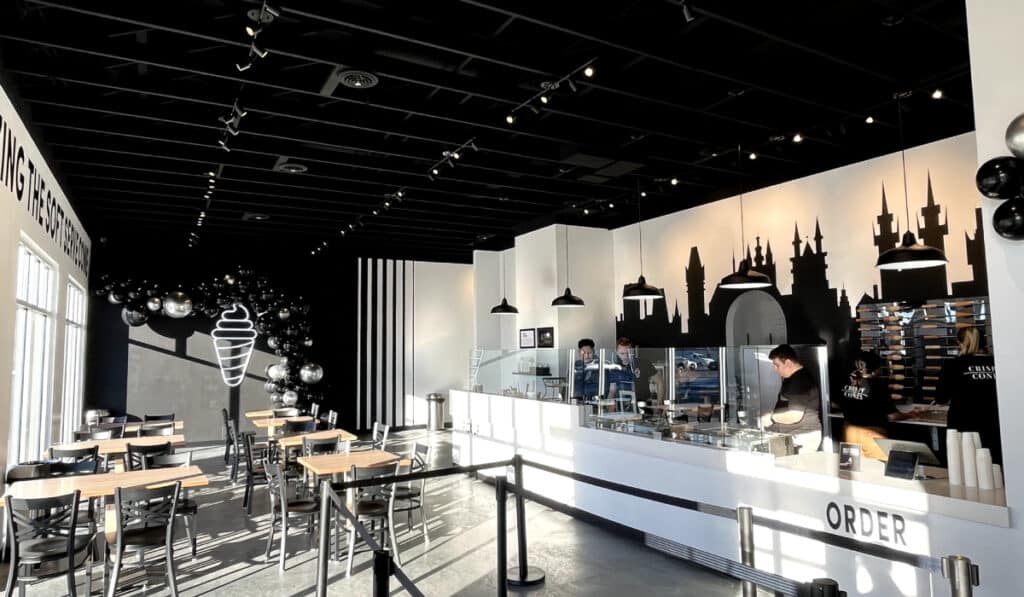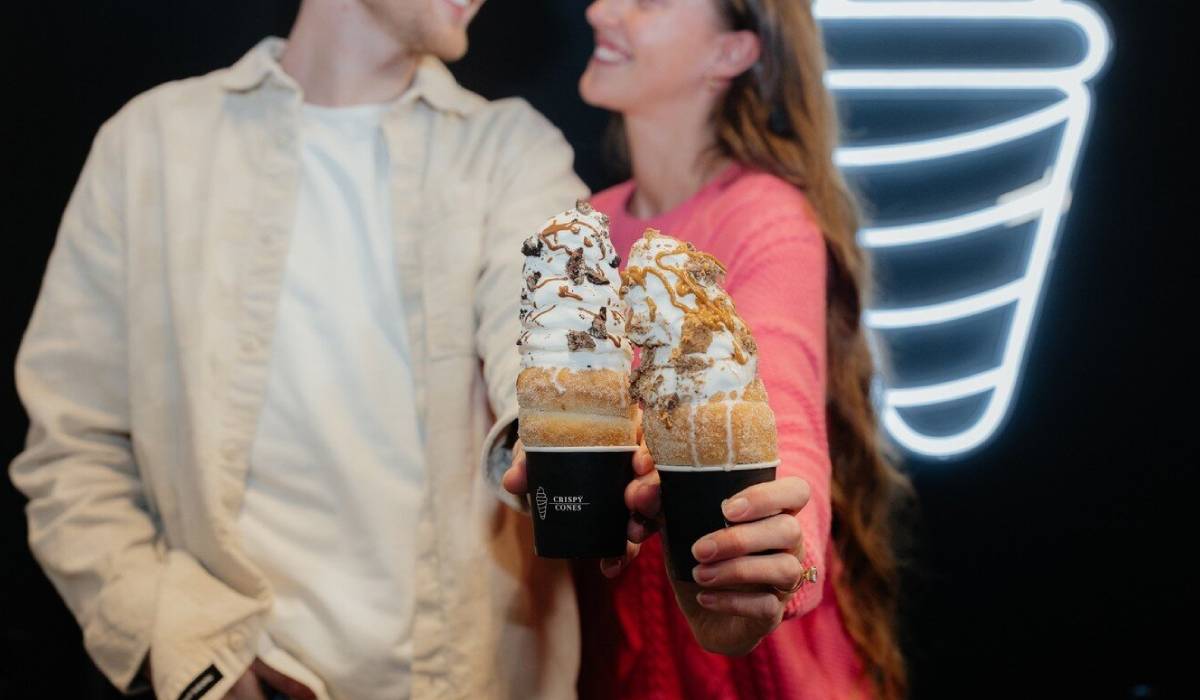Idaho-based Crispy Cone is growing in the U.S., but the idea was birthed more than 5,000 miles away.
Jeremy Carlson spent two years in the Czech Republic on a church mission and was inspired by the country’s street vendors who made ice cream cones out of dough.
“I thought, ‘This is incredible. I need to share this love for the product in the U.S.,'” Jeremy says.
When he arrived back stateside, he attended BYU-Idaho during the day and used his aunt’s kitchen at night to practice the recipe. Jeremy even flew back to the Czech Republic to perfect it.
He officially opened for business in 2018 out of a tent on the side of the road in Rexburg, Idaho. During that first year, he earned $21,000 in four months. For the second year, Jeremy designed a trailer shipped from China and brought in $70,000 in five months. Despite the COVID-ridden 2020, Crispy Cone grossed $80,000. The first brick-and-mortar shop opened in Logan, Utah, in 2021, and another store came online in Rexburg in 2022.



The company sells dough cones that are freshly grilled rotisserie style around a custom wooden dowel. Once the cone reaches a golden brown color, it’s taken off the dowel and covered in cinnamon sugar or a specialty powder. That cone is then filled with either Nutella, cookie butter, or peanut butter, and combined with gourmet soft serve ice cream. Customers can finish it off with a selection of toppings and sauces.
Jeremy and his wife Kaitlyn Carlson felt confident enough in the business to apply for “Shark Tank.”
“We jumped on the website, applied. It was like three questions,” Jeremy says. “Didn’t think we’d hear back, kept growing our business headquartered up here in Idaho. We were selling franchises. We were thriving and then we got a call from the producers and they said, ‘Hey, we’d love to interview you and see if this is the right fit. And then for the next six months, we basically worked with a producer and then we went on the show.”
In September 2022, Jeremy and Kaitlyn pitched to Mark Cuban, Barbara Corcoran, Kevin O’Leary, Laurie Greiner, and Robert Herjavec. Although their segment was sliced to around 15 minutes on television, in reality, they spent an hour in front of the Sharks. The couple entered the pitch wanting $200,000 for 10 percent equity and eventually inked a deal with Corcoran for $200,000 and 20 percent equity.


Corcorcan has the proper franchise experience. In 2012, she decided to invest in Cousins Maine Lobster when the company had only existed for two months. Now, the food truck franchise has roughly 60 units and stands as one of the top “Shark Tank” investments in the show’s history.
Following the pitch, Corcoran’s team spent four months performing due diligence on Crispy Cones.
“We basically worked with her team ensuring that all the things we said on the show were accurate, which they were, and then we closed that deal January 1, of 2023, and we flew out to New York City and we’ve been with Barbara multiple times and she mentors us, consults us, and helps us grow our franchising business,” Jeremy says.
On the day Jeremy and Kaitlyn made the pitch, they closed their first franchise deal in Chandler, Arizona. After the episode aired in March 2023, hundreds of applications rolled in. Much of last year was spent nailing down the foundation with vendors and suppliers and building relationships with franchisees as they interviewed them.
During a follow-up episode that aired in February, Jeremy and Kaitlyn shared that lifetime sales had reached over $2 million. They also revealed a new express model without indoor seating—suitable for malls and other smaller storefront sizes—and custom kiosk technology that eliminates the cashier and increases revenue by 60 percent thanks to upselling. That second “Shark Tank” episode led to hundreds of more franchise applications.
Crispy Cones now has six locations across Utah, Idaho, and Arizona. It expects to have 11 units by the end of this year and 50 shops by 2024. The typical store is 1,400 square feet while the express prototype will be between 700 and 900 square feet. Crispy Cones uses a national general contractor and architect to build units in 60 days for franchisees; the Carlsons have even seen it done in six weeks.
So far, the brand has sold 30 franchise units nationwide and projects it will reach 100 locations sold by the end of 2024. The growth will be focused on the Sun Belt in warmer states like Texas, Florida, Georgia, Tennessee, and North Carolina. Crispy Cones struck a deal with Sysco to facilitate countrywide distribution of products.
The chain uses a market analysis team to examine areas where it may want to sell and determine how many units can fit into the market. The chain then onboards franchisees that match up best with the DMA. The fast casual is looking to partner with multi-unit operators. The chain sold an eight-store area development agreement for Tennessee and North Georgia, with all shops being built on a four-year timeline. But that would be considered a bigger franchisee. Other area agreements run in the lower single digits in terms of store count.
“We’re ready just to onboard new franchisees and build that momentum,” Jeremy says.








